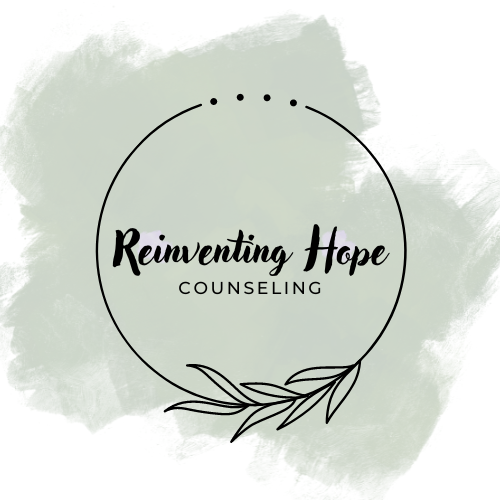What is Depression, Its Symptoms, Causes, and Treatment?
What is Depression, Its Symptoms, Causes, and Treatment?
Depression is a mental health disorder characterized by persistent feelings of sadness, low mood, and a lack of interest or pleasure in activities. It goes beyond occasional feelings of sadness that everyone experiences as a part of life. Depression can significantly impact a person's thoughts, emotions, behaviors, and physical well-being. It's important to note that depression is a complex condition with varying degrees of severity, and it can manifest differently in different individuals.
Symptoms of depression can vary but often include:
Persistent Sadness: A pervasive feeling of sadness, emptiness, or hopelessness that lasts for most of the day, nearly every day.
Loss of Interest or Pleasure: Reduced interest or pleasure in activities that were once enjoyable, including hobbies, social interactions, and even personal relationships.
Fatigue and Low Energy: Feeling constantly tired and lacking the energy to carry out daily tasks.
Changes in Appetite and Weight: Significant changes in appetite, leading to either weight loss or weight gain.
Sleep Disturbances: Insomnia (difficulty falling asleep or staying asleep) or hypersomnia (excessive sleepiness) are common in depression.
Feelings of Guilt or Worthlessness: Excessive feelings of guilt, worthlessness, or self-blame, often disproportionate to the situation.
Difficulty Concentrating: Trouble focusing, making decisions, or remembering things.
Psychomotor Agitation or Retardation: Restlessness or slowed movements and speech.
Physical Symptoms: Headaches, digestive problems, and other physical complaints without a clear medical cause.
Suicidal Thoughts: In severe cases, depression can lead to thoughts of death or suicide. If you or someone you know is experiencing these thoughts, it's important to seek help immediately.
Causes of Depression
Depression is a complex mental health condition with multiple potential causes. It often results from a combination of genetic, biological, environmental, and psychological factors. Some of the key factors that can contribute to the development of depression are:
Biological Factors:
Genetics: Family history of depression can increase the risk of developing the condition. Certain genetic factors may predispose individuals to depression.
Brain Chemistry: Imbalances in neurotransmitters, such as serotonin, dopamine, and norepinephrine, which play a role in regulating mood, can contribute to depressive symptoms.
Hormonal Changes: Fluctuations in hormones, such as those that occur during puberty, pregnancy, the postpartum period, and menopause, can impact mood and increase the risk of depression.
Psychological Factors:
Personality Traits: Certain personality traits, such as low self-esteem, pessimism, and excessive self-criticism, can make individuals more vulnerable to depression.
Negative Thought Patterns: Persistent negative thinking patterns, such as catastrophizing and ruminating, can contribute to the development and maintenance of depression.
Stressful Life Events: Traumatic events, loss of a loved one, financial difficulties, relationship problems, and other significant stressors can trigger or exacerbate depression.
Environmental Factors:
Early Life Experiences: Childhood trauma, neglect, or abuse can increase the risk of developing depression later in life.
Social Isolation: Lack of social support and feelings of loneliness can contribute to the onset of depression.
Lifestyle Factors: Substance abuse, poor diet, lack of physical activity, and inadequate sleep can contribute to the development of depression.
Medical Conditions:
Chronic Illness: Certain medical conditions, such as chronic pain, autoimmune diseases, and neurological disorders, can increase the risk of depression.
Neurological Factors: Brain injuries, infections, and other neurological conditions can impact brain function and increase susceptibility to depression.
Experiencing occasional symptoms from the list doesn't necessarily indicate depression. However, if several of these symptoms persist for at least two weeks, it could signal clinical depression. Depression can result from various factors, and triggers and risk factors differ among individuals. Not everyone with risk factors will develop depression, and not all cases have clear causes.
Top Tips For Managing Depression
Educate Yourself: Learn about depression and its treatment options. Understanding the condition can help you manage its effects more effectively.
Build a support network: Surround yourself with understanding and supportive people, such as friends, family, or support groups. Connecting with others who have experienced similar challenges can provide validation and encouragement.
Prioritize self-care: Focus on taking care of your physical and emotional well-being. This includes getting enough sleep, eating a balanced diet, and engaging in regular exercise. Establish healthy routines and make self-care a priority.
Engage in activities you enjoy: Participate in activities that bring you pleasure and a sense of accomplishment. This might involve hobbies, creative outlets, sports, or spending time in nature. Engaging in enjoyable activities can boost mood and provide a sense of purpose.
Set achievable goals: Break down large tasks into smaller, more manageable goals. Start with small, achievable steps and gradually work your way up. It is important to celebrate even the smallest accomplishments along the way.
Challenge negative thoughts: Notice and challenge negative thoughts that contribute to your depression. Reframe and replace them with more realistic and positive thoughts.
Practice self-compassion: Be kind and understanding toward yourself. Treat yourself with the same care and compassion you would show to a loved one. Acknowledge that it's okay to have bad days and be patient with yourself as you navigate through depression.
Establish a routine: Create a structured daily routine that includes activities and tasks. Having a routine can provide a sense of stability, purpose, and accomplishment, even during challenging times.
Explore relaxation techniques: Engage in relaxation exercises such as deep breathing, progressive muscle relaxation, mindfulness meditation, or yoga. These practices can help reduce stress, promote relaxation, and improve overall well-being.
Avoid self-isolation: Even though depression might make you feel like withdrawing from social activities, try to resist the urge to isolate yourself. Stay connected with supportive friends and family members. Seek opportunities for social interaction, even if it feels challenging at first.
Establish a Healthy Diet, Limiting Alcohol and Caffeine: A balanced diet rich in fruits, vegetables, whole grains, and lean proteins can contribute to improved mood while excessive alcohol and caffeine consumption can disrupt sleep and worsen mood fluctuations.
Get Adequate Sleep: Aim for a consistent sleep schedule and practice good sleep hygiene to improve the quality of your sleep.
Limit Stress: Identify sources of stress and find healthy ways to manage or reduce them. This could include time management, delegation, or setting boundaries.
Practice Self-Compassion: Treat yourself with kindness and understanding, just as you would a friend.
Stay Patient: Recovery takes time, and setbacks can happen. Be patient with yourself and celebrate small victories.
Remember that what works for one person may not work for another, so it's important to find a combination of strategies that suit your individual needs. If your symptoms are severe or worsening, or if you have thoughts of self-harm or suicide, seek help immediately.
Reach out today to get treatment options, personalized guidance tailored to your needs, and support.
Here are additional resources on depression:
https://www.helpguide.org/articles/depression/coping-with-depression.htm
https://www.healthline.com/health/depression/how-to-fight-depression

